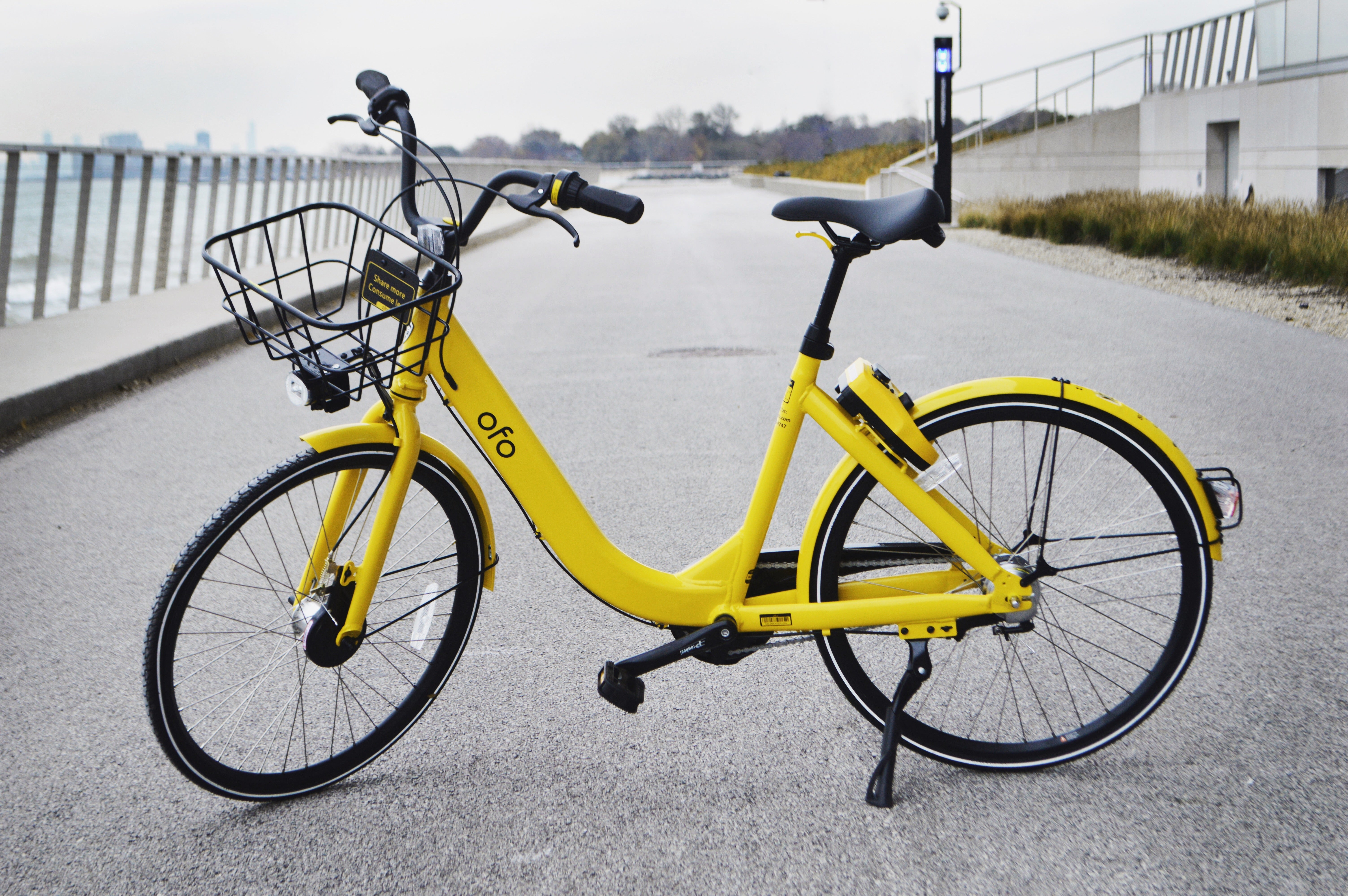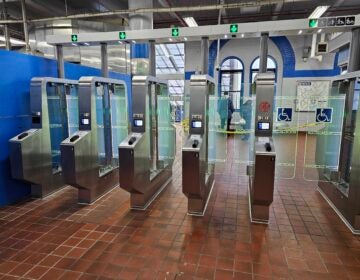Will a bike share system that relies on smartphones work for Camden?

On May 1st — or May Day, the date chosen by Communists as their own over a century ago — Camden will begin piloting a sharing program for a vehicle that hit its zenith in popularity during the fin de siècle: the bicycle. But this social experiment with dockless bike share, touted as a way to promote equity and literally increase worker mobility, is backed by venture capitalists and wealthy private foundations.
Thanks to a $1.8 million grant from the William Penn Foundation, Coopers Ferry Partnership, an economic development nonprofit in Camden, will launch the bike share program with Ofo, a Chinese company that has reportedly raised $2.2 billion in venture capital. (Disclosure: The William Penn Foundation supports WHYY.)
The seven-month pilot will see the “hundreds” bikes spread across the small city of 76,000 residents, said Coopers Ferry Partnership CEO Kris Kolluri. Kolluri was unable to say exactly how many bikes there’ll be, explaining that the bike supply would be determined solely by Ofo based off of demand. Using a smartphone app, customers will be able to rent the self-locking bikes for $1 per hour.
A map function on the app will allow riders to locate an available GPS-equipped bike. Once they’ve found a bike to reserve, they will scan a QR code to unlock the rear wheel. At the end of their trip, riders can lock and leave the bike essentially wherever they want — although Camden city officials are imploring users to leave the bikes on sidewalks and parking lots, and not in the middle of the street or, worse, the river.
Some residents may have trouble accessing the new bikes, though. Riders must use the smartphone app to unlock the bikes, and while smartphone adoption has increased significantly in recent years, the devices remain far from ubiquitous, especially among lower-income populations. According to a recent survey by the Pew Charitable Trusts, 77 percent of Americans own a smartphone and just 67 percent of those earning less than $30,000 per year do. In Camden, the median income is $26,214, and 48.3 percent of households earn less than $25,000 per year. And, according to market research firm GfK, smartphones prices have been rising across the globe, going up to $324 on average last year.
Even if they have a smartphone, some residents may stumble on another hurdle: the app requires users to enter in a credit or debit card to make trip payments. According to a 2013 FDIC survey, 7.7 percent of American households are unbanked, meaning they don’t have a traditional checking or savings account, and tend to use cash for purchases, not plastic. Almost all unbanked individuals struggle with poverty, and many rely on the kind of check-cashing establishments found all across Camden.
Kolluri said that Ofo would pilot an option that would allow unbanked riders to use credit cards, but was unable to say whether or not that option would be available at the launch or how that program would work.
“We’re just hoping that people will try [bike share],” said Kolluri. “It’s just a pilot program, so we aren’t sure how people will respond. It’s just a demonstration.”
A portion of the William Penn Foundation money will go to Rutgers University’s Alan M. Voorhees Transportation Center to study how Camden’s residents take to bike sharing. The results will help city officials decide whether to make the program permanent.
Kolluri was unable to say how much of the $1.8 million grant would go to Ofo for the seven-month pilot. Dockless bike share has cost most other cities virtually nothing. In Seattle, the dockless operators actually pay the city $15 per bike to operate.
Dockless bike share first took off in China starting around 2015 and has spread rapidly across U.S. cities in the last year, fueled in large part by massive injections of cash from investors. These backers are betting that one or two of the many dockless start-ups will eventually dominate the market, not unlike how Lyft and Uber have taken over the ride-hailing business. Uber, not coincidentally, recently acquired dockless bike share operator JUMP for a reported $200 million.
Whether such a market consolidation will occur remains to be seen, though. Analysts believe the extremely cheap rental fees — Ofo’s $1 per hour, typical in the U.S. among dockless startups, is much cheaper than Indego’s walk-up rate of $10 for a day pass providing unlimited half-hour trips* — are unsustainably low prices aimed at driving competitors out of business. And even if the nascent industry does ultimately winnow down just a few firms competing for contracts with governments, organizations like Coopers Ferry and other private clients, it’s unlikely that attendant economies of scale will keep prices down, meaning the surviving companies would probably jack up prices.
That’s why city transportation officials on the other side of the Delaware River will keep a close eye on Camden’s dockless experiment as Philadelphia contemplates the next generation of its own bike share program, Indego.
“We’re excited about new technology,” said Aaron Ritz, transportation systems manager at Office of Transportation and Infrastructure Systems (OTIS). “But we’re really interested in new technology that helps push our Indego program into that long-term sustainable model that’s going to be around for a while that’s going to be sort of reliable system that Philadelphia can count on.”
OTIS recently solicited pitches for “advanced bike-sharing technologies,” receiving 14 responses. OTIS expects to begin bidding a contract for upgrading or replacing Indego sometime this fall.
La Salle University in North Philadelphia also recently launched its own dockless bike share program for students, staff, and faculty, contracting with Spin, a San Francisco-based company.
*CORRECTION: This sentence originally said that Indego’s walk up rate for a single ride was $4. Indego stopped offering single ride payment options on April 12th.
WHYY is your source for fact-based, in-depth journalism and information. As a nonprofit organization, we rely on financial support from readers like you. Please give today.






